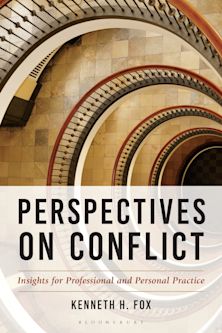The Little Guide to Writing for Impact
How to Communicate Research in a Way that People Will Read
The Little Guide to Writing for Impact
How to Communicate Research in a Way that People Will Read
Description
Everyone who writes in the world of public affairs wants to make arguments that will move readers and shape policy. That world, however, is busy and noisy, and even the best ideas often get squeezed out in the frenetic pace of policy debates. No author wants that to happen to their hard work.
In this fresh and lively book, Barrett, Greene, and Kettl combine more than a century of experience in writing to present a series of guidelines that will enable readers to successfully frame a policy argument; pitch it to editors; organize the work so that the ideas have real impact; support it with data and stories; find the right publisher; and follow up after publication to ensure that the argument has enduring impact. These basic steps work well—but work differently—for a wide variety of policy writing, from short blog posts through an op-eds, commentaries and policy briefs, dissertations, articles for both the popular press and academic journals, and books.
The book is a handy manual for writers in the world of research who want to explore the start-to-finish process of writing for impact—and for authors who want to explore a single writing challenge in-depth. It is full of examples of both good and bad writing, as well as the authors’ own tales in navigating the road from a new idea to a written product that packs punch. It’s a fun and useful primer for steering the policy debate.
Table of Contents
Preface
Introduction
Chapter 1: Write for Aunt Tillie: Simple, Clear Writing Is King
Chapter 2: One Size Doesn’t Fit All: Make Sure You Know Your Audience
Chapter 3: Escaping Inside Baseball: Shortcuts Can Drive Your Readers Away
Chapter 4: Good Writing Is Like Good Music: Keep Your Writing Interesting So Readers Will Stay for the Finale
Chapter 5: Shoot for the Target: Keep Your Writing at the Appropriate Length
Chapter 6: A Picture is Worth a Thousand Words: Visualize Your Data to Communicate Complex Facts Clearly
Chapter 7: “All We Want Are the Facts, Ma’am”: Make Sure There’s Evidence to Support Your Argument
Chapter 8: Don’t Forget Your Pitchfork: Learn How to Make the Best Possible Argument for the Pieces You Are Writing through a Pitch that Engages Your Readers
Chapter 9: Keep Your Friends Close: Find Partners in Your Effort to Be Understood
Chapter 10: The Care and Feeding of Editors: How to Make the Writing Experience a Collaboration
Chapter 11: Downloading Some Facts about Social Media: The Evolving World of Online Communication Can Help You Accomplish Your Goals
Chapter 12: This Is the Chapter before the Conclusion…It’s about Conclusions: Setting the Stage for Your Next Effort
Conclusion
Acknowledgments
About the Authors
Product details
| Published | Mar 12 2024 |
|---|---|
| Format | Ebook (PDF) |
| Edition | 1st |
| Extent | 140 |
| ISBN | 9798216330288 |
| Imprint | Rowman & Littlefield |
| Illustrations | 19 BW Photos |
| Publisher | Bloomsbury Publishing |
Reviews

ONLINE RESOURCES
Bloomsbury Collections
This book is available on Bloomsbury Collections where your library has access.



































